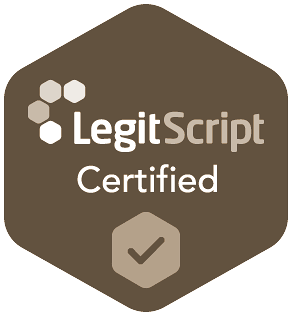Prism Neurofeedback
For PTSD & Depression


Prism is a brain training therapy designed to help people with PTSD and depression. It uses real-time brain activity feedback to help you learn how to better control your symptoms.
Prism is the first FDA-cleared self-neuromodulation software specifically designed for treating PTSD and depression. Unlike other interventions, Prism is completely non-invasive and drug-free.
How it Works
Prism teaches you to control your own brain using your thoughts. The treatment uses a computer and a cap with EEG sensors that can measure your brain activity and turn it into a game-like experience where your personal memories, emotions or experiences control what happens on screen.
During development of Prism , machine learning was used to register data from functional MRI (fMRI) brain scans to EEG. Prism helps you decode which of your thoughts is the most effective in controlling the computer simulation and your trauma, or depression.
1. Setup
You wear a soft cap with sensors that measures your brain activity. No fMRI scan needed.
2. Brain Training
Control animated characters on screen using your thoughts and memories.
3. Learn Your Strategy
Discover which mental strategies work best and practice them at home. Examples include singing a song in your head or imagining yourself floating in space.
How it Helps
- For PTSD: Retrains the part of your brain that handles fear and emotional responses after trauma
- For Depression: Re-trains the part of your brain that controls joy and motivation
Treatment Schedule
- Takes up to 8 weeks
- 10–15 sessions twice a week
30 min each - All sessions take place at our clinic
Benefits
Personalized Treatment
You learn which of your own personal thoughts and memories help you to self-regulate. Prism adapts to your unique brain patterns, making treatment more effective for your specific symptoms.
No Medication Required
No medication side effects or remembering to take your medications. Prism doesn't involve drugs or invasive procedures. It's a good option if you prefer to avoid medication or haven't had success with traditional treatments.
You Stay in Control
You learn techniques you can use on your own to manage your symptoms, giving you more control over your mental health.
Proven Results
Prism is the first new PTSD treatment approved by the FDA in seven years. For PTSD, clinical studies show that 67% of patients had significant symptom improvement, including better sleep. For depression, 76% of patients experienced meaningful reduction in symptoms.
What to Expect
Side Effects
Side effects are mild and temporary. Some people report headache or fatigue that goes away on its own after completing the Prism session.
What You'll Do
Practice using personal mental strategies while watching animated characters respond to your brain activity.
Your Results May Vary
Like most treatments, Prism doesn't work well for everyone. Some people may see dramatic improvements while others may have more modest results.


Take the first step and talk to a care navigator.
Your care navigator will explain the process, discuss insurance and costs, and connect you with a clinician to explore today’s most advanced mental health treatments.


